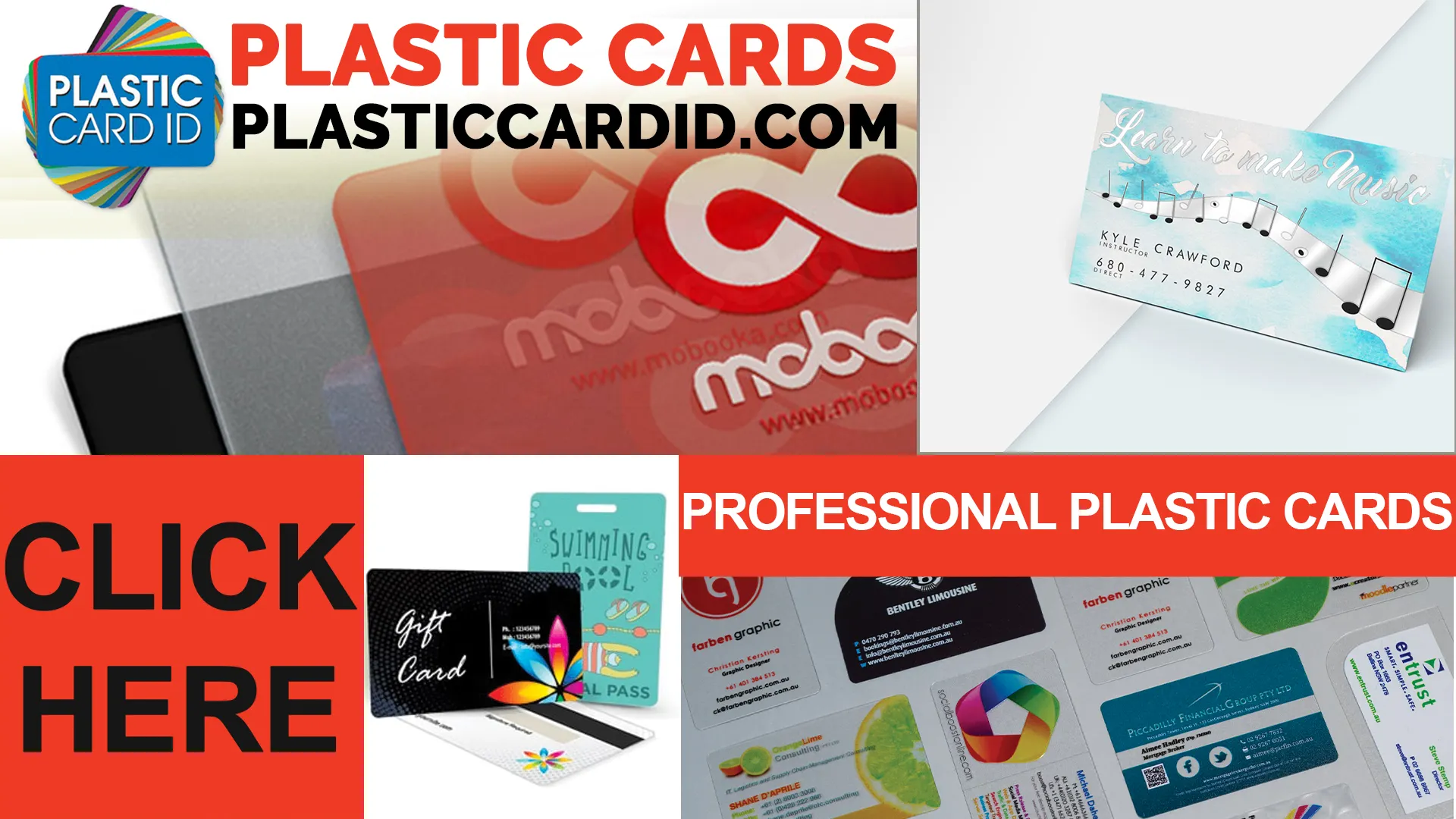Understanding PVC Cards: Pros Cons and Practical Uses
Table of Contents []
- PVC Cards Pros Cons
- Welcome to the PVC Cards Debate at Plastic Card ID
- What are PVC Cards and Why are They Popular?
- Evaluating Alternatives to PVC Cards
- Considering the Entire Product Lifecycle
- Creating a More Sustainable Market Position
- The Bottom Line: Balancing Business and Environment
- Join Us on Our Journey Towards Sustainability
- Ready to Make a Change? Contact Plastic Card ID Today!
PVC Cards Pros Cons
Welcome to the PVC Cards Debate at Plastic Card ID
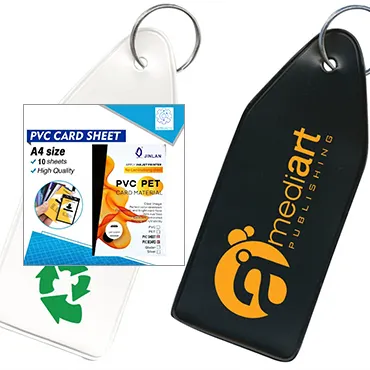
In today's eco-conscious world, it's more important than ever to consider how our choices impact the environment. At Plastic Card ID , we're taking a closer look at the materials we use in our products, specifically PVC cards. These cards are everywhere from credit cards to gift cards. But just because they're common doesn't mean they're the best option. Let's delve into the pros and cons of PVC card materials and see how they stack up against market trends and environmental factors.
Before we dive in, remember that if you have any questions or need to place an order, our team is always here to help! Just dial 800.835.7919 and we'll get you sorted out in no time, no matter where you are in the nation.
What are PVC Cards and Why are They Popular?
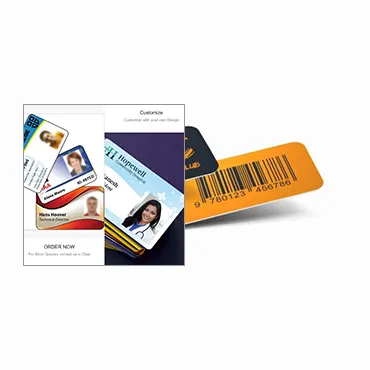
Let's start with the basics. PVC, or polyvinyl chloride, is a versatile plastic used in a variety of products. Its flexibility and durability make it a popular choice for cards. But what really sets PVC apart is its printability and ability to hold embedded features such as magnetic stripes and chips. knows these are critical components in the functionality of many modern cards.
Why are these plastic cards so prevalent? Well, they're cost-effective for businesses and convenient for consumers. Plus, they have a long lifespan, which means less frequent replacement. However, is it enough to keep them at the forefront of our product line? Let's take a closer look.
The Benefits of PVC Cards
Firstly, we can't ignore the benefits that PVC cards have brought to the table over the years:
- Cost-Efficiency: Bulk production of PVC cards is relatively straightforward and economical.
- Durability: They can withstand daily wear and tear, keeping them functional for longer periods.
- Customization: The material allows for a wide range of designs and features to suit any business need.
These factors have contributed to the widespread adoption of PVC cards in various industries, from banking to retail.
The Not-So-Bright Side of PVC
Yet, as we strive for sustainability, it's crucial to consider the other side of the coin:
- Environmental Impact: Unfortunately, PVC cards aren't biodegradable and can accumulate as plastic waste in landfills and oceans.
- Chemical Concerns: The production of PVC can release harmful chemicals, which has implications for both worker safety and the environment.
- Recycling Challenges: Unlike other plastics, PVC cards are not easy to recycle due to their composition and the embedded features like chips and magnetic stripes.
This is where the considerations get more complex - aligning profit with principle is no simple feat at .
Market Trends and Consumer Attitudes
In response to these issues, market trends are shifting. Consumers are increasingly looking for sustainable products, and companies are under pressure to adapt:
- Rise of Alternatives: There's a growing market for card materials that are more environmentally friendly, like biodegradable or recycled plastics.
- Changing Regulations: Governments worldwide are emphasizing greener regulations, which could impact the use of PVC in the future.
- Brand Image: Companies that prioritize sustainability are often held in higher regard, which can influence consumer choices.
With these trends in mind, Plastic Card ID sees an opportunity to innovate and align with consumer values.
Evaluating Alternatives to PVC Cards
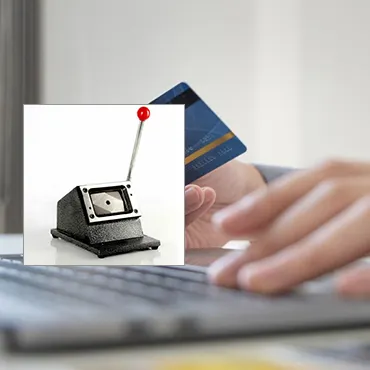
The quest for a sustainable alternative to PVC cards is not just a moral choice; it is also a business opportunity. is scouring the market for materials that meet our stringent quality standards while reducing environmental impact.
Materials like PET (polyethylene terephthalate) and bioplastics are emerging as viable alternatives. These materials offer similar durability and printability but with a reduced ecological footprint. But how do they measure up in terms of cost and availability? We're weighing these factors carefully.
The Future is Green
As we look to the future, we're considering how to integrate these alternatives into our product lines:
- Testing Durability: It's vital to ensure that alternative materials can stand the test of time as well as PVC.
- Cost Analysis: Adopting new materials must make economic sense both for us and for our customers.
- Marketability: These materials should also enhance our brand image as a forward-thinking, environmentally responsible company.
It's a challenging puzzle, but one that we at Plastic Card ID are excited to solve.
Economics of Eco-Friendly Choices
The economics of sustainable alternatives often involve a trade-off:
- Upfront Costs: Initially, switching to green alternatives might be more expensive. But we believe it's an investment in our planet's future.
- Long-Term Rewards: Over time, eco-friendly options can lead to cost savings through improved efficiency and waste reduction.
- Customer Loyalty: Demonstrating a commitment to the environment can foster a loyal customer base, which is invaluable.
At , we're crunching the numbers and considering the long game.
Keeping Up with Compliance
Regulatory compliance is also a driving factor in evaluating alternatives:
- Adhering to Standards: We're ensuring any new materials meet industry standards and regulations.
- Anticipating Changes: Laws and policies are evolving, and Plastic Card ID is staying ahead of the curve, preparing for future compliance requirements.
- Transparent Communication: We promise to keep our customers informed about how regulatory changes might affect our products and services.
Our goal is to stay compliant without passing undue costs or inconveniences on to our customers.
Considering the Entire Product Lifecycle
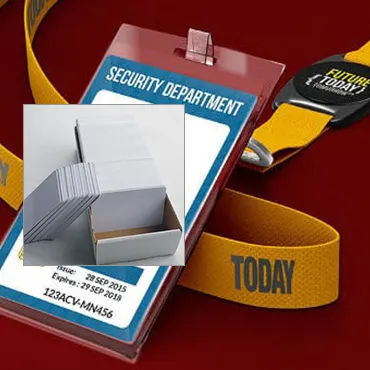
When it comes to materials, it's important to think about the entire lifecycle from production to disposal. PVC cards may last a long time, but their end-of-life impact is substantial. So, we're exploring the lifecycle of alternative materials, assessing their environmental footprint at each stage.
is not just looking for a quick fix. We're aiming for solutions that make sense from the moment they're created until they're no longer needed.
Production Phase Considerations
Every material has an environmental cost associated with its production:
- Resource Use: We're analyzing the raw materials and energy required to produce alternative card materials.
- Emission Reduction: It's important to choose materials that contribute to lower emissions during production.
- Supplier Sustainability: Our partners' environmental practices are just as crucial as our own. We're scrutinizing our supply chain to ensure it aligns with our sustainability values.
We're not taking any shortcuts when it comes to production ethics at Plastic Card ID .
Usage and Functionality
The key to a successful card material is how well it serves its purpose:
- Performance Standards: Any alternative to PVC must meet the same performance criteria our customers expect.
- Features and Security: New materials must support essential card features like magnetic stripes, chips, and contactless technology to ensure security and functionality.
- User Experience: The feel of a card in your hand and how it swipes or taps are all part of the user experience. We want every interaction with our products to be a positive one.
The end-user experience is paramount in our deliberations at .
End-of-Life Scenarios
What happens to a card after it's no longer needed is a critical piece of the puzzle:
- Disposal Options: We're evaluating whether these alternatives can be recycled, composted, or otherwise disposed of in an environmentally friendly way.
- Facilitating Recycling: It's also about making it easier for consumers to recycle and providing clarity on how to dispose of the cards responsibly.
- Educating Consumers: Plastic Card ID is committed to educating our customers about the end-of-life options for their cards to promote responsible disposal.
Eco-friendly disposal is a priority for us, and we're working to close the loop in the card lifecycle.
Creating a More Sustainable Market Position
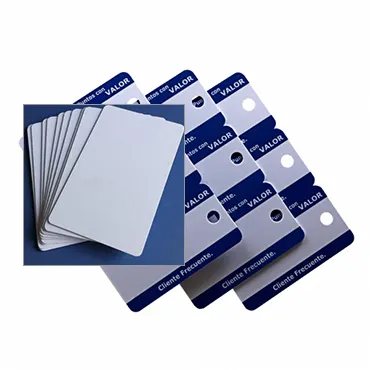
Moving towards sustainable materials is more than just an environmental decision for ; it's also about carving out our place in a developing market. We believe that being a leader in sustainability will set us apart and create a lasting bond with our customer base.
As we align our offerings with market trends, we're not just following the wave we're aiming to be the ones making it.
Branding and Identity
Sustainability is becoming a part of brand identity:
- Communicating Values: Our commitment to the environment is a message we want to weave into the fabric of our brand.
- Sustainability Certifications: We're seeking out certifications and labels that convey our dedication to eco-friendly practices.
- Marketing that Matters: In our advertising and outreach, we're focusing on telling the story of sustainability and why it's important to us.
We're not just selling products; we're selling a vision for a more sustainable future with Plastic Card ID .
Targeting a Conscious Consumer Base
The modern consumer is informed and values-driven:
- Meeting Demands: By adapting to consumer preferences for sustainable products, we're ensuring that we meet the demands of the market.
- Building Trust: believes that transparency about our environmental impact builds trust with consumers who care about these issues.
- Creating Advocates: Satisfied, environmentally conscious customers often become vocal advocates for the brands they support.
We're not just changing materials; we're building relationships based on shared values.
Strategic Partnerships and Collaborations
Innovation often comes from collaboration:
- Joint Ventures: We're open to working with partners across industries to develop new sustainable card materials.
- Industry Consortiums: Participating in groups focused on sustainability helps us stay at the forefront of development and share best practices.
- Community Engagement: Local initiatives and environmental programs allow us to contribute to sustainability efforts on the ground.
Collaboration is key to creating a ripple effect that extends beyond our immediate sphere.
The Bottom Line: Balancing Business and Environment
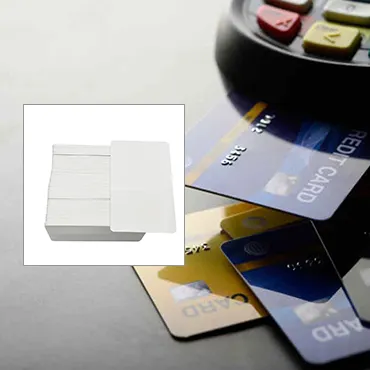
At the end of the day, is a business, and we have to balance our environmental goals with economic realities. We're considering the return on investment for sustainable alternatives and looking at ways to optimize our processes to support a more eco-friendly approach without compromising quality or value for our customers.
Every decision we make has an impact, and we're committed to making those impacts positive. We might not have all the answers yet, but we're on a journey and dedicated to finding solutions that work for everyone.
Cost-Benefit Analysis for Sustainability
It's all about finding that sweet spot:
- Evaluating the Costs: We're carefully assessing the financial implications of switching to sustainable materials.
- Exploring the Benefits: The potential upsides extend beyond the balance sheet to brand enhancement and customer satisfaction.
- Investing Wisely: Our investments in sustainability are calculated to ensure they pay off in the long run.
We're taking a comprehensive approach to cost-benefit analysis at Plastic Card ID .
Optimizing Operations for Sustainability
There's no need for sustainability to come at the expense of efficiency:
- Energy Efficiency: By adopting cleaner, more efficient production methods, we can reduce our carbon footprint.
- Waste Reduction: We're cutting down on waste throughout our operation, from manufacturing to office practices.
- Lean Processes: By streamlining our operations, we can be both more sustainable and more competitive.
Operational efficiency is a win-win for us and the environment.
Sustained Commitment to Progress
Our efforts toward sustainability are ongoing:
- Continuous Improvement: We're always searching for ways to enhance our sustainability measures.
- Being Proactive: Instead of waiting for change, we're driving it within our industry.
- Setting Milestones: Whether it's reducing emissions or increasing our use of recycled materials, we're setting and achieving sustainability goals.
Progress is a process, and at Plastic Card ID , we're committed to moving forward every day.
Join Us on Our Journey Towards Sustainability
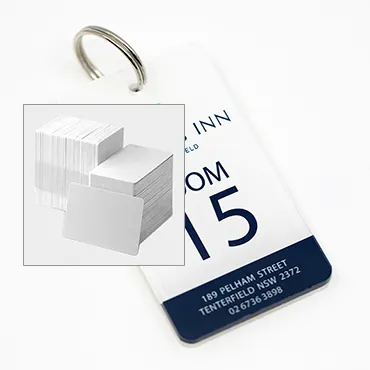
Exploring the pros and cons of PVC card materials is just the beginning. At Plastic Card ID , we're fully embracing the challenge of aligning our product offerings with market trends and environmental considerations. And we invite you our customers, partners, and community to join us on this vital journey.
Have questions, or ready to place an order for sustainable card options? Our friendly team is just a phone call away. Reach out to us at 800.835.7919 , and let's make a difference together!
Ready to Make a Change? Contact Plastic Card ID Today!

If you're inspired to switch to more eco-friendly card materials, or if you want to support a company that prioritizes sustainability, look no further than Plastic Card ID . With our eyes on the future and our values firmly rooted in doing what's right, we're the partner you need in this journey toward a greener planet.
Don't wait to make a positive impact. Whether you're placing a new order or you have queries about our products, just give us a ring at 800.835.7919 . Together, let's create a more sustainable tomorrow.
Previous Page

